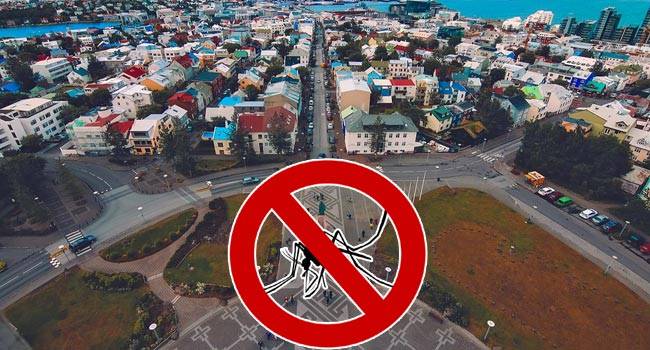There are no mosquitoes in iceland

There are no mosquitoes in Iceland.

When it comes to mosquitoes, Iceland stands out as an exceptional place. This Nordic island nation is home to breathtaking landscapes, geothermal wonders, and an interesting fact - it has no native mosquitoes. Yes, you read that right, Iceland is a mosquito-free country. But why is this the case?
Mosquitoes are notorious for their annoying bites and ability to spread diseases. However, Iceland’s geographical location plays a crucial role in keeping these pesky insects at bay. Situated in the North Atlantic Ocean, just below the Arctic Circle, Iceland’s cold and harsh climate makes it an unwelcoming habitat for mosquitoes to survive and reproduce.

Mosquitoes require stagnant water to lay their eggs and complete their life cycle. However, Iceland’s climate is characterized by cold temperatures, strong winds, and a lack of standing water, which makes it extremely challenging for mosquitoes to thrive. The country’s high-quality water sources and effective drainage systems also contribute to the absence of mosquito breeding grounds.
Unlike other parts of the world where mosquitoes are prevalent, Iceland’s residents and visitors enjoy outdoor activities and peaceful evenings without worrying about mosquito bites. This unique feature has become one of Iceland’s selling points, attracting tourists seeking relief from these buzzing insects.
Iceland’s mosquito-free status not only enhances the outdoor experience but also provides several ecological and health benefits. The absence of mosquitoes means there are no significant threats to the native ecosystem and wildlife. Additionally, Iceland’s inhabitants are spared from diseases commonly transmitted by mosquitoes, such as Zika virus, dengue fever, malaria, and West Nile virus.
This remarkable fact about Iceland has garnered attention and fascination from around the globe. Many people wonder what it would be like to live in a place where mosquito repellents and protective clothing are unnecessary.
Although Iceland is mosquito-free, it’s essential to note that mosquitoes can accidentally hitch a ride to the island through various means, such as on birds or in airplanes. Therefore, occasional individual mosquitoes might show up in Iceland, but they do not establish breeding populations.
In conclusion, Iceland’s mosquito-free status is a result of its harsh climate, lack of suitable breeding grounds, and effective drainage systems. This unique feature not only adds to the country’s allure but also provides a mosquito-free haven for its residents and visitors. So if you’re planning a trip to Iceland, rest assured that you can fully enjoy its majestic landscapes without worrying about swatting away these buzzing pests.
Source: The New York Times
Related Posts
Quick Links
Legal Stuff

